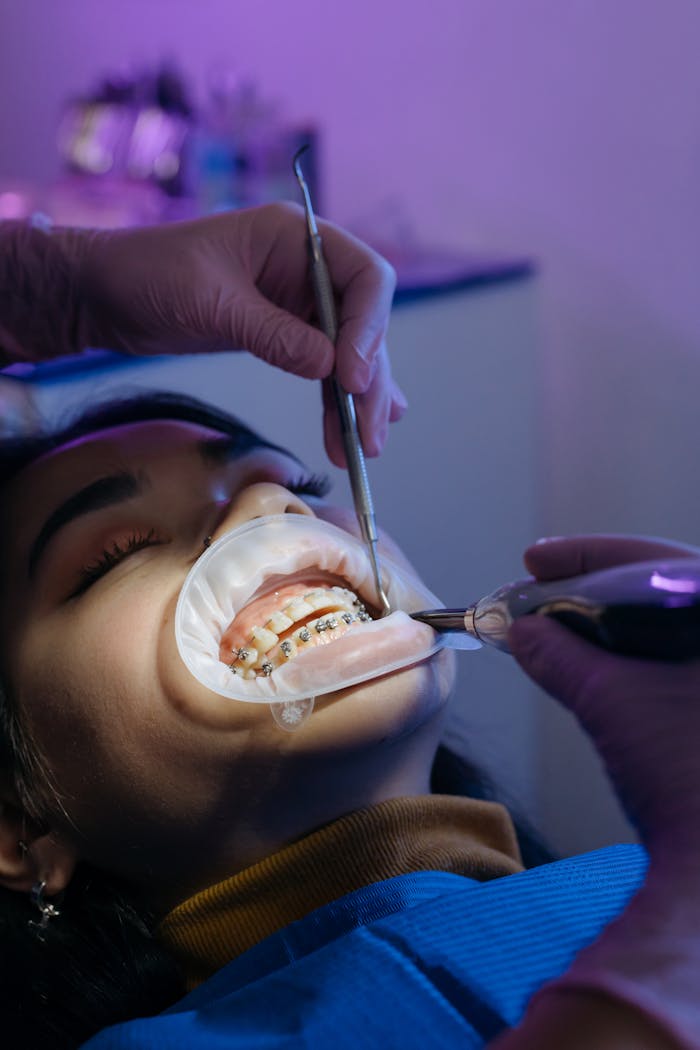Wisdom teeth, also known as third molars, typically emerge in late adolescence or early adulthood. While some people experience no issues, for many, these molars can cause a range of dental problems due to impaction, crowding, or infection. Timely extraction is often necessary to preserve oral health. This comprehensive guide will explore the signs that indicate you need wisdom teeth removal, the extraction process, and recovery tips.
1. What Are Wisdom Teeth? A Quick Overview
Wisdom teeth are the final set of molars that emerge at the back of your mouth, typically between the ages of 17 and 25. Most adults have four wisdom teeth, but it’s possible to have fewer—or none at all. Unlike other teeth, wisdom teeth often lack the necessary space to erupt properly, leading to potential complications.
Why Are Wisdom Teeth Problematic?
Due to their position, wisdom teeth are prone to issues such as impaction (when they don’t fully emerge) or misalignment. When left untreated, they can lead to pain, infection, and damage to surrounding teeth.
2. Top Signs You Need Wisdom Teeth Removal
If you’re experiencing the following symptoms, it may be time to consult an oral surgeon:
a. Persistent Pain or Discomfort
Pain at the back of the mouth is the most common sign of wisdom teeth problems. This pain can be intermittent or constant and may radiate to the jaw, ears, or head.
b. Swelling and Inflammation
Swollen gums around the wisdom tooth area are a red flag. This swelling may extend to the cheeks or jaw and is often accompanied by redness and tenderness.
c. Jaw Stiffness or Difficulty Opening the Mouth
Limited jaw mobility or a feeling of stiffness can indicate that wisdom teeth are impacting surrounding tissues or other teeth.
d. Recurring Infections or Gum Disease
Pericoronitis, a condition where the gum tissue around a partially erupted wisdom tooth becomes inflamed, is a frequent problem. Symptoms include bad breath, a bad taste in the mouth, and pus discharge.
e. Cysts or Tumors Formation
In some cases, impacted wisdom teeth can lead to the development of cysts, which can damage the jawbone and surrounding teeth.
f. Crowding of Other Teeth
Wisdom teeth can push other teeth out of alignment, causing crowding. This is particularly concerning for individuals who have undergone orthodontic treatment.
g. Tooth Decay in Nearby Teeth
Because wisdom teeth are hard to clean due to their position, they can contribute to the decay of adjacent teeth.
3. The Wisdom Teeth Extraction Process
Understanding the extraction process can alleviate anxiety and help you prepare.
a. Pre-Surgery Consultation
Your oral surgeon will conduct a comprehensive examination, including X-rays or 3D imaging, to determine the position and condition of your wisdom teeth.
b. Types of Anesthesia
Wisdom teeth extraction is typically performed under local anesthesia, IV sedation, or general anesthesia, depending on the complexity of the case and patient preference.
c. Surgical Procedure
The procedure involves making an incision in the gum tissue to expose the tooth. If the tooth is impacted, it may be sectioned into smaller pieces for easier removal. Once extracted, the area is cleaned, and sutures may be placed.
d. Duration of Surgery
Most wisdom teeth extractions take 45 minutes to an hour. Complex cases involving impaction may take longer.
4. Post-Operative Care: Tips for a Smooth Recovery
Proper aftercare is crucial to ensure healing and prevent complications.
a. Pain and Swelling Management
- Ice Packs: Apply ice packs to reduce swelling during the first 24 hours.
- Pain Medication: Take prescribed or over-the-counter pain relievers as directed by your surgeon.
b. Dietary Guidelines
Stick to soft foods such as mashed potatoes, yogurt, and smoothies for the first few days. Avoid hot, spicy, or crunchy foods that may irritate the surgical site.
c. Oral Hygiene
- Rinse Gently: Use warm salt water rinses starting 24 hours after surgery.
- Avoid Brushing Near Extraction Sites: Be gentle around the affected area to avoid dislodging the clot.
d. What to Avoid
- No Smoking or Straws: These can cause dry socket, a painful condition where the blood clot is dislodged.
- Avoid Vigorous Activity: Rest and avoid strenuous activities for the first few days.
5. Complications to Watch For
While wisdom teeth removal is generally safe, some complications can arise:
a. Dry Socket
Occurs when the blood clot is dislodged or dissolves too early, exposing the bone and nerves. Symptoms include severe pain and an unpleasant odor.
b. Infection
Signs of infection include fever, persistent swelling, or pus discharge from the surgical site.
c. Nerve Damage
In rare cases, nerve damage can result in numbness or tingling in the tongue, lip, or chin. This is usually temporary.
6. When to Call Your Oral Surgeon
Contact your surgeon immediately if you experience:
- Persistent bleeding that doesn’t subside after 24 hours.
- Intense pain that isn’t managed by prescribed medications.
- Signs of infection, such as fever or excessive swelling.
- Difficulty breathing or swallowing.
7. Choosing the Right Oral Surgeon in Atlanta
Selecting a skilled and experienced oral surgeon is critical for a successful outcome. Consider the following:
a. Board Certification and Experience
Look for surgeons certified by the American Association of Oral and Maxillofacial Surgeons (AAOMS).
b. Patient Reviews and Testimonials
Check online reviews and patient testimonials to gauge the quality of care.
c. Advanced Technology
Choose a practice that uses advanced diagnostic tools like digital X-rays and 3D imaging.
Wisdom teeth extraction is a common but significant procedure that can prevent future dental complications. Recognizing the signs early and seeking timely intervention are crucial. By understanding the process and following post-operative care guidelines, patients can ensure a smooth recovery. If you’re in Atlanta and suspect you need wisdom teeth removal, schedule a consultation with a trusted oral surgeon today for personalized care.



